Dogs Of Europe – Belarus Free Theatre/Barbican, London
A review of Dogs of Europe, a production by Belarus Free Theatre at the Barbican. Well, who would have guessed when booking this that it would become so much more pressing and relevant?
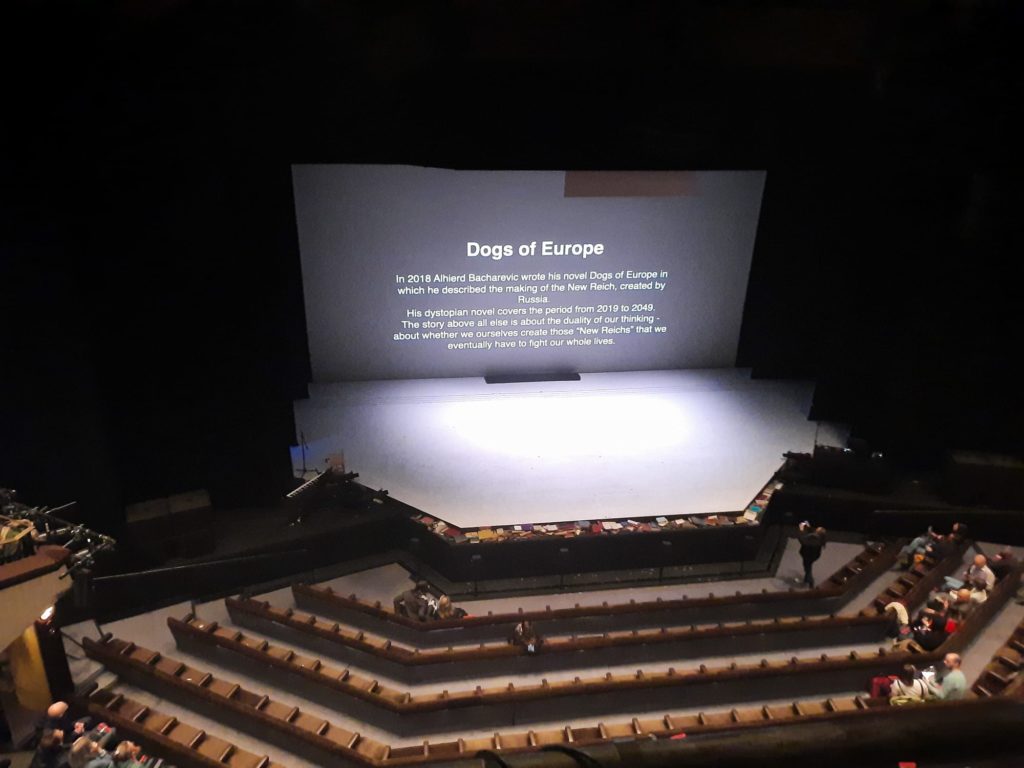
Belarus Free Theatre
Let’s start today at the beginning, with some background information on Belarus Free Theatre. I’ve seen some intensely creative theatre companies over the years. And some companies from countries where the arts are less supported and therefore more precious. But I don’t recall seeing any other companies where members risk beatings, detention and exile in order to express themselves. This is unfortunately the case for Belarus Free Theatre, founded in Minsk in 2005. You may be thinking that the reason they have run into issues is for staging political plays. But that’s not really the case – the issue is more that they bypass state control over the arts in Belarus and promote open conversation about topics that are taboo.
At home, Belarus Free Theatre is an underground organisation. They rehearse and perform in secret places; private apartments, the forest. Performances are free. There is a frequent police presence, and sometimes arrests. Abroad, Belarus Free Theatre is lauded and celebrated. They have had many high profile supporters (including Harold Pinter and Ian McKellan), won awards, and perform to packed out theatres.
What a divided existence this must be. Founders Nikolai Khalezin and Natalia Koliada have political asylum in the UK. As far as I can ascertain, the other performers still live and work in Belarus (although maybe they are now also in exile?). How different receiving a standing ovation in London to being constantly on the move in Minsk. A real act of bravery for all those involved and a reminder that we shouldn’t take our freedom of expression for granted.
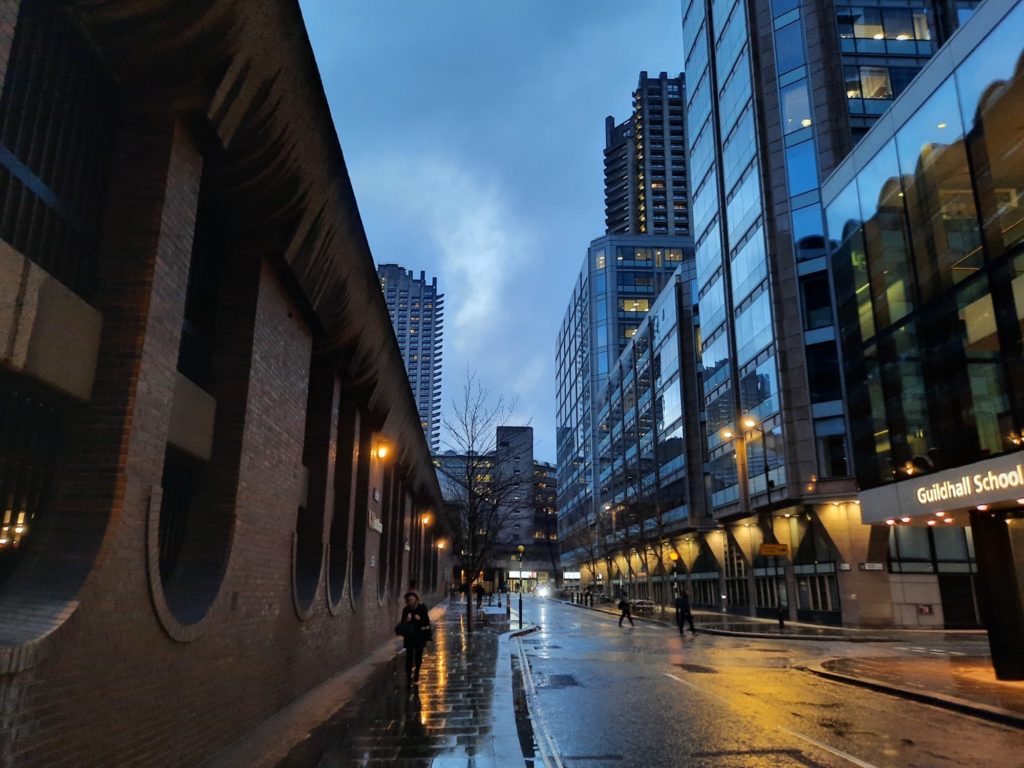
Dogs of Europe
The performance I saw at the Barbican is based on a book which is also banned in Belarus. Written by Alhierd Bacharevič in 2017, Dogs of Europe, published in six parts over 900 pages, is a story about what happens when we allow authoritarianism to take hold. Considered Bacharevič’s magnum opus, it is set in the near future when Europe is once again divided between East and West. Russia has consolidated vast swathes of territory into a New Reich. The European Union has disintegrated and reformed itself as the League of European States. We see life on both sides of the wall, and neither is great. On one side, nationalism and free thought are suppressed. On the other, a bloated decay has taken hold and it seems nobody even values their relative freedom.
This could easily be a rather depressing evening, hitting us over the head with one of our own potential futures. But what Belarus Free Theatre do very well is to infuse the story with a sense of fun, to somewhat divorce the action from reality so that we can turn towards rather than away from the important messages it contains.
It would almost be shorter to name the art forms that were not included in the performance rather than the ones that were. There is the acting, of course. But there is also traditional music and dancing. A bit of rapping and contemporary choreography. Acrobatics. Animation. CGI. These latter two actually do the heavy lifting in terms of setting the scene, with the set design stripped right back to symbolic elements which add depth and drama. In terms of the sheer multimedia aspect of Dogs of Europe, the closest parallel I can draw is the company 1927.
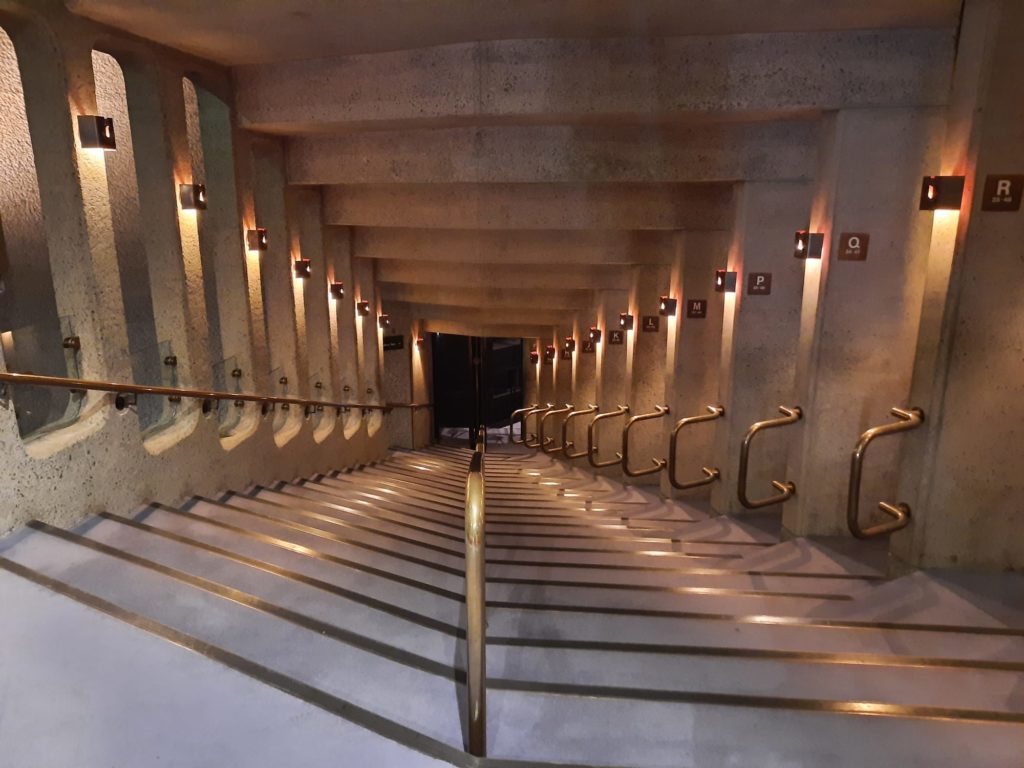
A Big Story
So there are big themes here. A complex dystopia. A big old novel to get through. Also a lot of plot strands. There’s a prologue with the veneration of a granny. A first half that takes place on one half of the new Iron Curtain, and a second half that’s (mostly) on the other. A mysterious villager and a parachutist. An unidentified body with a potential link to a poet. A made up language. A time capsule. Oh, and the most unique interval you are ever likely to experience. In the end, it’s one of those performances where it’s better to just focus on the overall impact rather than the minutiae of a complicated plot.
It’s definitely an ensemble effort, but the performances that stand out are Aliaksei Naranovich, who plays a couple of key roles and is also the performer in that unique interval I mentioned. Plus the musicians, Mark and Marichka Marczyk, also known as Balaklava Blues. Marichka’s powerful and haunting voice is an absolute standout.
If there’s a downside, it’s the length of the evening. The advertised running time is 2 hours 40 minutes. And since then it’s gained at least 20 more minutes. I understand this, because it’s a reaction to the invasion of Ukraine. But the audience (especially me) was noticeably fidgety by the end. But between a 900 page book, a lot of additional choreography around the action and the inclusion of new, topical elements, I don’t know that this could have been avoided.
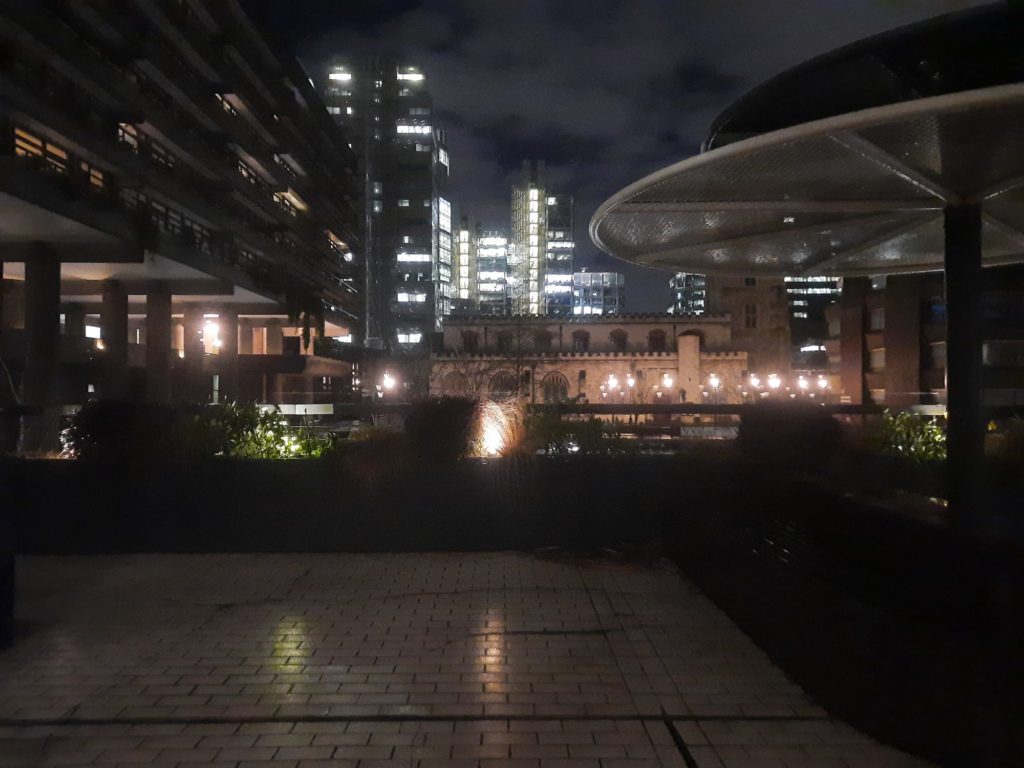
Final Thoughts on Dogs of Europe
Within the context of their homeland as well as the context of the performing arts, Belarus Free Theatre are important. They remind us that the creative arts speak to people at a more profound level than a lot of political discussion or rhetoric. I’m really pleased to have had the opportunity to see this performance.
What I didn’t foresee when I booked for Dogs of Europe some months ago is that Russia would be in the process of building a New Reich when I saw it. Members of the company have lost friends and family already, and they are all affected by Belarus’s involvement in the conflict in Ukraine. At the end of last night’s performance Natalia Koliada came on to make a rousing speech about the importance of political activism here and now. The plot of Dogs of Europe feels terrifyingly close.
Salterton Arts Review’s rating: 4/5
Dogs of Europe’s final Barbican performance is 12 March 2022
Trending
If you see this after your page is loaded completely, leafletJS files are missing.

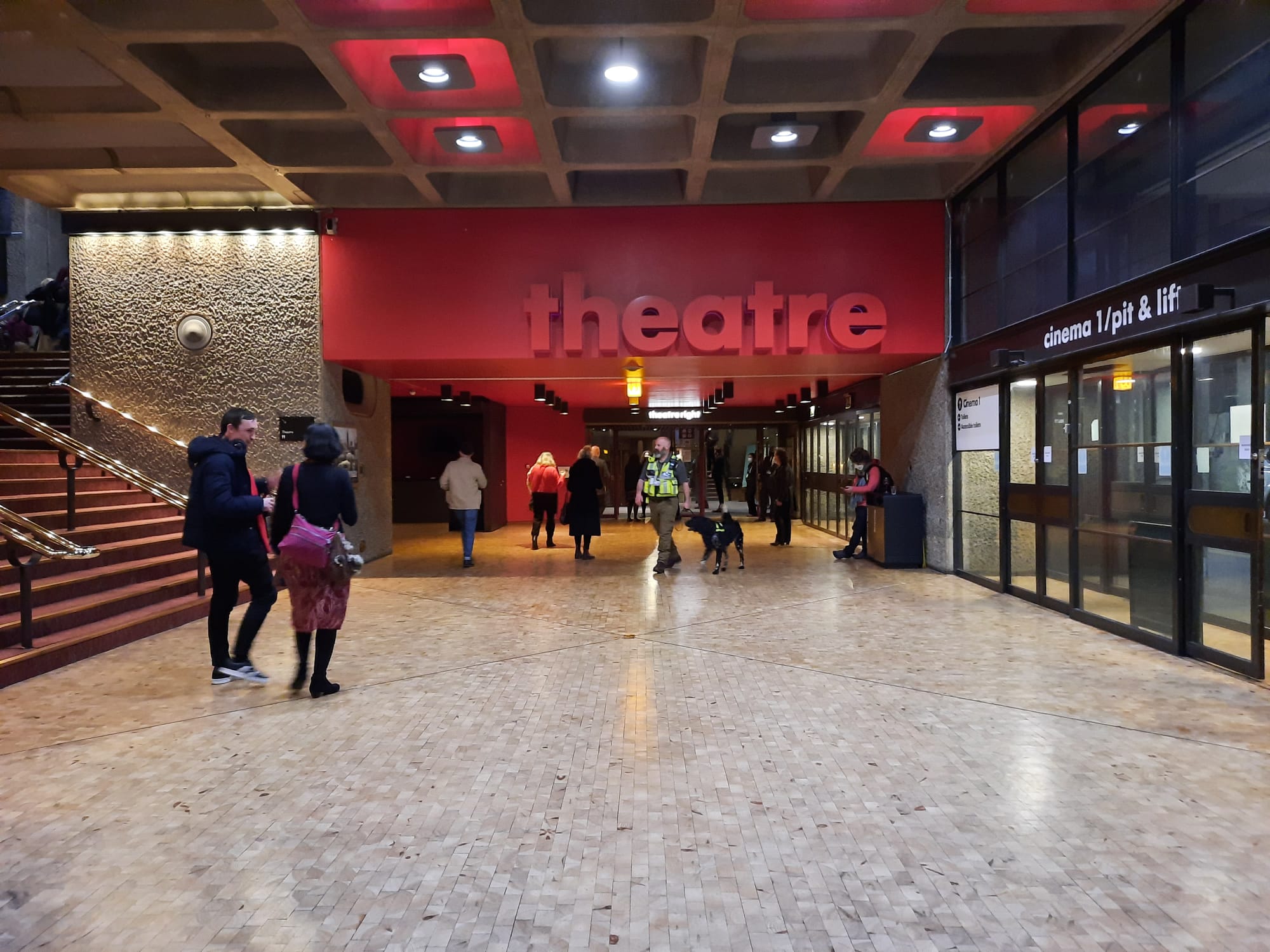
2 thoughts on “Dogs Of Europe – Belarus Free Theatre/Barbican, London”